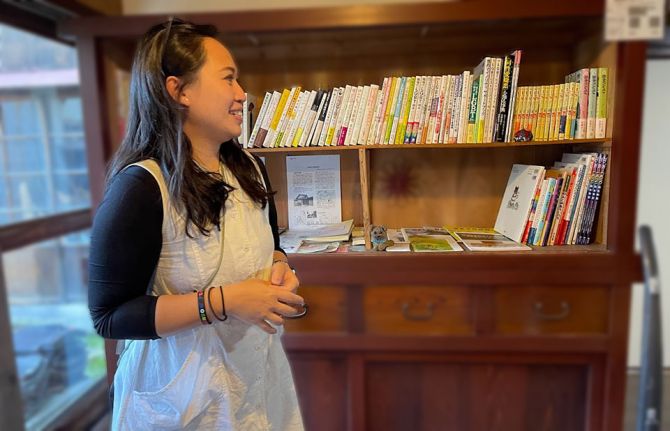
Feature Story
India: changing lives through TV programming
24 avril 2006
24 avril 2006 24 avril 2006
Panchu, holding his daughter for the first time
Nothing can be more devastating for a father than not being able to touch his own children. And that is exactly what happened to Panchu Bhol, a villager in the south-eastern state of Orissa, India. Many men from this poverty-stricken hinterland of Puri district migrate seasonally to Gujarat in search of livelihood. Panchu had also embarked on this migration route, regularly sending money to his family, until he contracted HIV in Surat, the port city of Gujarat.
News of Panchu’s HIV status spread like a wildfire. His family was excommunicated, and his village declared Panchu a curse. Even Panchu himself started to believe it. He lost the courage to pick up his daughter, fearing that he might infect her. Banned from the village life, Panchu cried at his fate, seeing death as the only way out.
But an extraordinary event in December 2005 turned his life around. Panchu still remembers the mild afternoon breeze on the day when the Kalyani team came to his hamlet. Kalyani - meaning the one who provides welfare - is a television health telecast on Doordarshan, the national television of India. Since May of 2002 when it was launched, the program about building positive health behaviors has been reaching nearly 50% of India’s population.
Doordarshan national television is the world’s largest public broadcaster and a signatory to the Global AIDS Media Summit. Providing localized content, Doordarshan produces its key messages in consultation with the National AIDS Control Organisation and the Ministry of Health. Its telecasts feature short spots, folk songs, and informative segments with experts, in an attempt to tackle themes of HIV related stigma, discrimination and treatment. Kalyani program also provides follow up action through expert visits to rural areas to interact with the target audiences.
Actors playing Kalyani characters ‘Sehri Didi and Chakulia Panda’, along with the rest of the Kalyani team, reached Panchu’s village. The team met an emaciated, bearded and confused Panchu. And as the villagers gathered to catch a glimpse of the movie stars, tears rolled out of Panchu’s eyes. It was the first time that someone had visited him since he had been diagnosed with HIV.
Informed of Panchu’s situation, Sehri Didi (the character portraying the sister’s role in the programme) offered to become Panchu’s “sister” in real life and tied him a raakhi, the traditional auspicious red thread. She also shared some sweets with him.
Sehri Didi challenged the villagers not to stigmatize her new “brother” Panchu. An elderly man from the crowd summed up the sentiments of the village: “You told us that HIV does not spread by touching people living with HIV or eating with them. Why should we hate Panchu? We are sorry we did not know this before.”
Panchu was finally accepted. Having learned about means of HIV transmission, Panchu took his daughter into his arms for the first time. For Sehri Didi, accustomed to crying with glycerine on screen, it was difficult to control her tears.
When the Kalyani team visited Panchu’s village three months later, they could hardly recognize him – now a clean shaven and confident young man championing HIV prevention. The doctor treating Panchu thanked the Kalyani team for removing a major hurdle in Panchu’s recovery – the social stigma.
Kalyani program airs in the capital cities of eight highly populated Indian states and there now exist nearly 2,000 community level Kalyani Health Clubs, with close to half million members.
Related
 Thailand’s Mplus: HIV services delivered in style
Thailand’s Mplus: HIV services delivered in style

13 décembre 2022
 Preventing transmission and tackling stigma: The power of U=U
Preventing transmission and tackling stigma: The power of U=U

12 décembre 2022

